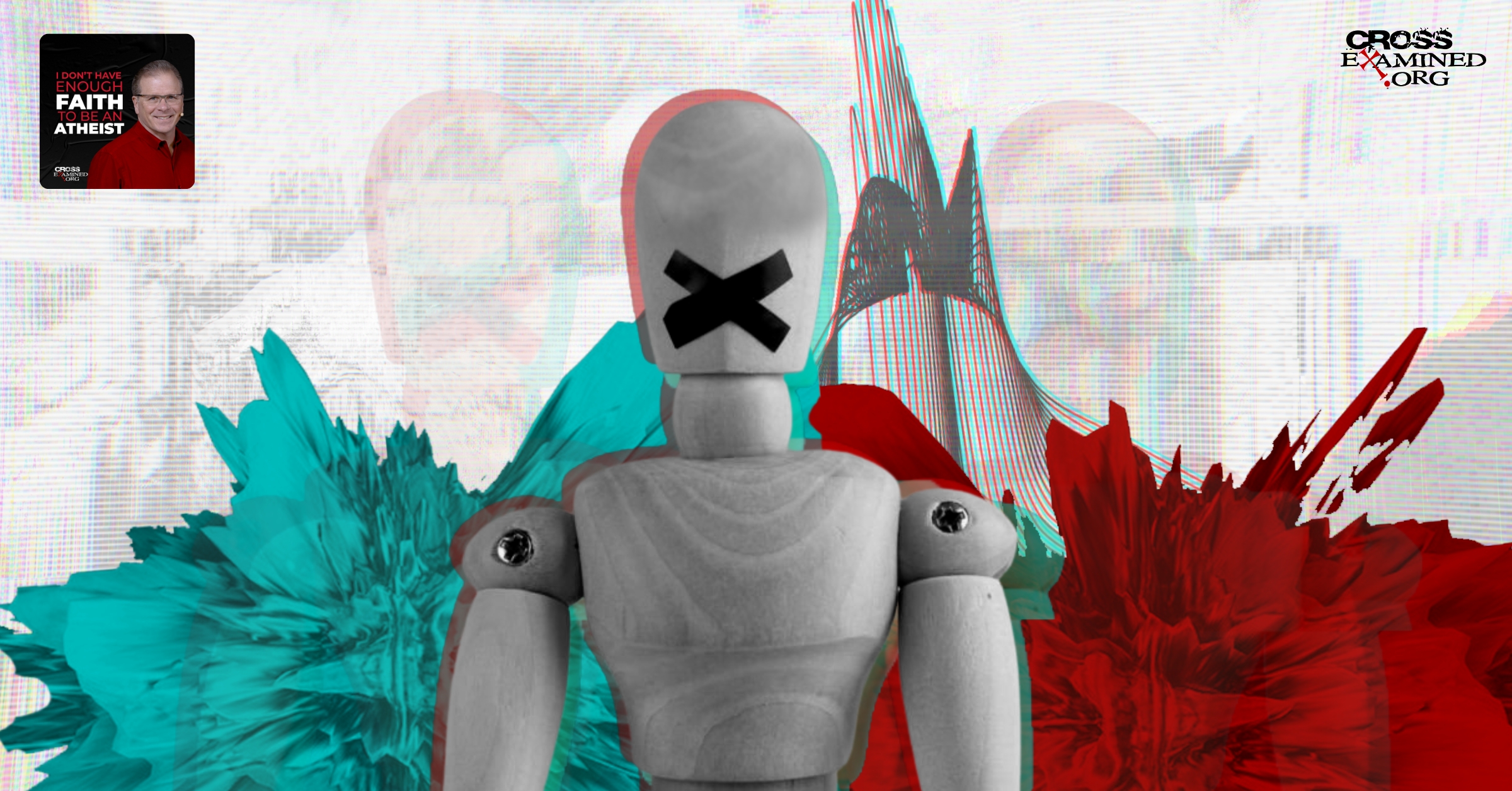5 Signs You’re Forcing Your Religion (or Atheism) on Your Kids… and 5 Signs You’re Not
Since my book, Keeping Your Kids on God’s Side, came out in March, I’ve been blessed to receive 75 five-star reviews of it on Amazon. To all who have taken the time to leave those reviews, thank you! It means a lot!
In addition to those 75 reviews, I’ve also received 2 one-star reviews…from people who haven’t read the book.
One headline says, “How to brainwash and indoctrinate your child instead of letting him/her think for themselves [sic]”. This is followed by his review, which simply says, “This whole concept is a little upsetting to say the least.”
The other one-star review says, “If you don’t trust your children to follow your religion on their own (without constant reinforcing) then either you don’t trust in your kids or in your religion.”
Clearly, neither of these commenters have read the book and are simply rating the idea of doing something—anything—to “keep your kids on God’s side.” I probably receive at least one blog comment to that effect every week: If you’re raising your kids with a Christian worldview, it automatically means you’re forcing your religion on them.
This is, frankly, nonsense.
Let’s take a minute today and consider what “forcing” your religion—or atheism—on your kids would actually look like…and what it wouldn’t.
5 Signs You’re Forcing Your Religion (or Atheism) on Your Kids
1. You encourage them to have a blind faith, whether you realize it or not.
A blind faith is one where a person accepts certain beliefs without question. I’m pretty sure that if you asked most Christian parents if they want their kids to have such a faith, they’d answer with an emphatic, “No!” Theoretically, everyone wants their kids to have a faith more meaningful than that.
But what many parents don’t realize is that you can inadvertently raise your kids with a blind faith by encouraging them to “just believe” in Jesus. Is this a heavy-handed or malicious forcing of religion? No. But it has a similar effect—it leads to kids having a faith that exists just because yours does.
Atheists who encourage their kids to reject God without question (because believing in God is just so ridiculous) are effectively doing the same thing.
2. You answer your kids’ questions about God with disapproval.
When kids ask questions about God, it’s the Christian parent’s privilege and responsibility to take the time to offer accurate and thoughtful answers. If your kids’ questions are met with disapproval, however, you’re teaching them that they should just accept what you believe for the sake of believing it. Again, is this a heavy-handed or malicious forcing of religion? No. But, again, it leads to kids having (some kind of) faith just because you do.
Atheists who are determined to make sure their kids don’t fall for the idea of God and show disapproval when their kids express interest in religion are guilty of the same thing.
3. You trivialize other worldviews.
I’ve heard far too many Christians condescendingly laugh at the idea of evolutionary theory, the fact that Mormons have special underwear, or that Muslims believe virgins are waiting in heaven for faithful martyrs. We don’t need to believe that every worldview is true (that’s not even possible), but we do need to make sure we don’t trivialize the beliefs of others by treating them as intellectually inferior. When we do, we’re effectively pushing our beliefs onto our kids by trying to make other beliefs look “small.” Instead of issuing snide remarks, we should be focused on teaching our kids to fairly evaluate the evidence for the truth of varying worldviews.
Atheists who teach their kids that Christianity is an absurd belief system for uneducated or gullible fools should take the same advice.
4. You threaten them with hell when they question the truth of Christianity.
If your gut reaction to a child expressing doubt about the truth of Christianity is something like, “You better not stop believing or you’re going to hell!”, you’re strong-arming them into belief.
Yes, hell is a reality spoken of repeatedly in the Bible. Yes, kids must understand that there is real judgment that awaits all people. But trying to make kids believe in Jesus out of fear won’t lead them to a true relationship with God. Parents should meet kids’ doubts with an open willingness to talk about questions…not with threats.
Atheists get a pass on this one since they don’t believe in hell.
5. You tie them down with ropes and repeatedly yell, “You will believe the way I do…OR ELSE!”
This is what it would look like to literally try forcing your religion or atheism on your kids. Obviously, that’s not happening. But people will keep using the word forcing anyway.
And 5 Signs You’re NOT Forcing Your Religion (or Atheism) on Your Kids
1. You encourage them to have beliefs rooted in good reason and evidence.
The opposite of raising your kids with a blind faith is raising your kids with a faith that’s deeply rooted in good reason. It’s helping them discover the evidence for God in nature—things like the origin of the universe, the design of the universe and of living things, and the origin of morality. It’s helping them understand that all religions can’t point to the same truth. It’s helping them learn the historical evidence for the resurrection. It’s helping them understand the intersection of faith and science. By teaching them why there’s good reason to believe Christianity is true, you’re making sure their beliefs are their own and are not just being pushed onto them from you.
(All of these subjects are covered in my book, Keeping Your Kids on God’s Side: 40 Conversations to Help Them Build a Lasting Faith. If you need help discussing these things, please check it out!)
Atheists can do the same by not simply expecting their kids to reject God, and by talking about the actual evidence they believe points to an atheistic universe.
2. You not only invite your kids’ questions, you raise questions they haven’t even thought of.
Parents shouldn’t see themselves as a Q&A machine. We need to be able to answer our kids’ questions, but we also need to teach them about the questions others raise about Christianity. As I’ve said before, if our kids are someday shocked by the claims of skeptics, we didn’t do our job. By proactively sharing those challenges, we demonstrate that truth has nothing to fear and that we’re not “forcing” them to see only one side of the picture.
Atheists should do this as well, by sharing with their kids the challenges theists raise to their worldview.
3. You proactively teach them about other worldviews.
It’s one thing to share the challenges to Christianity with your kids (point 2, above). But it’s another thing to study worldviews in their entirety. For example, you might address the common atheist challenge that miracles aren’t possible, but that doesn’t give your kids a comprehensive understanding of what the atheist worldview is and what its implications are. It’s important that kids get that bigger picture for the major worldviews today so, once again, they never feel we’re forcing them to see only one perspective.
Atheists…you knew it was coming…should be doing this too. If atheist parents just nitpick at Christianity by teaching their kids random snippets of Christian belief and never take the time to offer a comprehensive picture of the Christian worldview, they’re just as guilty of passing on a one-sided perspective.
4. You deal with your kids’ doubts by helping them find meaningful answers to their questions.
Parents who address doubts by helping their kids find meaningful answers to their questions—rather than personally threatening them with eternal consequences—are giving their kids the tools they need to make their faith their own.
If atheists have kids who are doubting their atheism, they should equally work to address those questions rather than casually brushing them off.
5. You DON’T tie them down with ropes and repeatedly yell, “You will believe the way I do…OR ELSE!”
Ironically, given those one-star reviews, my book is all about why parents need to not push a blind faith onto their kids…and how to, instead, help them make their faith their own.
It definitely doesn’t suggest we should effectively or literally force religion upon our kids. No ropes. No yelling. No threats. Not even a one-sided presentation of Christianity.
But the claims will continue to come because too many people don’t stop to think about what it actually means to force religion on kids…and what it doesn’t.
Fortunately, I now have this post to share and help them out. I’m sure they’ll be very grateful.












Leave a Reply
Want to join the discussion?Feel free to contribute!